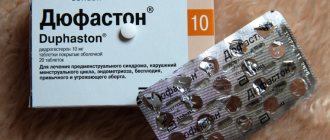pharmachologic effect
The drug dilates the blood vessels of the heart; when used, the level of resistance in arterioles and other coronary (heart) vessels decreases. It improves blood circulation, increasing the volumetric speed of blood flow in the myocardial vessels. The substance inhibits platelet aggregation (that is, their gluing) and prevents the formation of blood clots (thrombi). Increases the heart's tolerance to oxygen deficiency.
If blood circulation in the main vessels of the heart is impaired, the drug helps shift the load to the collateral network of vessels, stimulating their work.
The drug also improves blood circulation in the brain. In addition, the drug generally increases the body's nonspecific resistance to infections of viral origin.
Dipyridamole acts as an inducer for interferon, increasing its production in the blood with the help of alpha and gamma leukocytes.
However, the mechanism of action of the drug has not yet been fully studied. The compound is believed to interfere with the reuptake of adenosine, thereby increasing its concentration. It is also believed that by inhibiting the PDE enzyme, the substance helps to increase the content of cAMP.
Following oral administration, the drug is rapidly absorbed from the digestive tract. Most of it enters the blood from the stomach, a smaller part from the small intestine. The digestibility of the drug ranges from 37 to 66%. Its content in the blood becomes maximum two hours after administration. The drug almost entirely binds to proteins present in the blood plasma.
Following oral administration of the drug, its plasma concentration decreases differently at each of the two stages. At the initial stage, the half-life is 20–30 minutes, and at the final stage this duration reaches 10–12 hours. Metabolism of the substance occurs in the liver, where it binds to glucuronic acid. Next, it is released into the bile and excreted in the form of monoglucuronide through the intestines. A small percentage (1–3%) of the drug is excreted from the body through the kidneys.
Interaction with other drugs
Patients additionally receiving beta-blockers and taking Dipyridamole at the same time may suffer from attacks of asystole and bradycardia.
Elderly patients who take this medicine along with anticholinergic drugs may experience problems with attention and memory.
When the drug is used together with acetylsalicylic acid or anticoagulants, the antiplatelet effect of the drug is significantly enhanced.
It is better not to use dipyridamole together with dobutamine, since cases of severe arterial hypotension have been recorded.
Taking the drug together with adenosine significantly enhances the effect of the latter remedy.
The instructions for Dipyridamole indicate that when taken with drugs that reduce gastric acidity (cimetidine, antacids, omeprazole and other proton pump inhibitors), the effectiveness of the main components of the drug being analyzed may decrease.
Indications for use
The drug is most often used as an antiplatelet agent, in other words, it is designed to prevent platelet aggregation. In particular, it is used if the patient has undergone surgery to avoid postoperative thrombosis (that is, the occurrence of blood clots in the vessels after surgery), for problems with cerebral circulation and in the period after myocardial infarction.
Patients suffering from chronic glomerulonephritis (kidney disease) improve their blood composition characteristics thanks to this drug.
Reviews
Veronica, 42 years old, Voronezh
I liked the drug because it works quickly. I took pills for blockage of blood vessels. I had varicose veins that developed against this background. The doctor prescribed Dipyridamole along with an anti-inflammatory drug and venotonics. The blood composition normalized, negative manifestations in the area of the affected veins decreased.
Anna, 38 years old, Saratov
Good drug. I took it when I discovered increased blood viscosity. Considering that I have some heart problems (my blood pressure rises), I was afraid of the consequences. But in my case there were no side effects, the dose was minimal.
Contraindications
The following are considered contraindications for dipyridamole:
- acute heart attack;
- severe heart rhythm disorders;
- hypersensitivity;
- chronic decompensated heart failure;
- collapse (that is, a sharp decrease in blood pressure) or a precollaptoid state (that is, preceding collapse).
- subaortic aortic stenosis;
- low blood pressure;
- hemorrhagic diathesis;
- chronic obstructive pulmonary diseases;
- diseases accompanied by an increased risk of bleeding (in particular, duodenal and gastric ulcers);
- chronic renal failure;
- liver failure;
- children under 12 years of age.
Instructions for use
Dipyramidol is taken orally on an empty stomach with a small amount of water; the tablet must be swallowed whole, without biting or breaking. The required dose is determined by the doctor taking into account the disease and the patient’s response.
To reduce platelet aggregation (antithrombic effect), take 75–225 milligrams per day. If the condition is of concern, the dose can be increased to 600 mg.
For coronary heart disease, take three daily doses of the drug, 75 milligrams each, with the possibility of increasing the dose if necessary.
To prevent circulatory disorders in the brain and treat them, take 225–450 milligrams every day.
When preventing placental insufficiency, take 3 tablets per day, either 25 milligrams or 75 milligrams; the doctor decides on the dosage.
This remedy is also used to prevent influenza and other acute respiratory infections. In this case, the admission course has the following scheme. Two 25 milligram tablets twice a day with a two-hour gap between doses should be taken once a week. This treatment should be carried out for eight to ten weeks.
Intravenous administration of the drug is not recommended, as it can lead to an uneven redistribution of blood in the vessels (steal phenomenon). As a result, the symptoms of angina pectoris will increase.
If the drug is administered parenterally (that is, not through the gastrointestinal tract), then it is necessary to avoid getting the substance under the skin, as in this case it can cause tissue irritation.
Do no harm
Normally, Dipyridamole is prescribed during pregnancy in the 3rd trimester, but in the early stages it is strictly not recommended to use it. This is due to the peculiarities of fetal development: by the end of pregnancy, the main vital systems have already been formed, so the chemical components that modern drugs are rich in will not be a source of harm. However, sometimes the product can be used in the second trimester. But in the first 14 weeks you cannot resort to it.
International standards classify the drug in question as category B. This indicates testing on animals. Based on the results of the measures, it was not possible to detect a negative effect on the fetus being carried by the female. But studies of effectiveness have not been organized in humans.
Adverse reactions
Adverse reactions for this drug include facial redness for a short time due to vasodilation. An increase in heart rate is also noted for the cardiovascular system.
For blood, a side effect may in rare cases be the opening of bleeding and the occurrence of thrombocytopenia. Sometimes platelets exhibit changes in their functional properties.
The reaction of the digestive system can be expressed in rare cases in nausea with vomiting, stomach pain, and diarrhea. If such manifestations are present during the first period of taking dipyridamole, they subsequently disappear.
Allergic reactions of the immune system are possible.
In addition, headache, dizziness, weakness, rhinitis, myalgia, and arthritis are possible.
At the same time, it has been established that when taking the substance in therapeutic doses, in most cases no side effects occur. When they occur, they are temporary.
Mindfulness is the key to health
Sometimes at an appointment the doctor says that using Dipyridamole during pregnancy is akin to using harmless vitamins in food. Once under the supervision of such a specialist, you need to think about changing the therapist, since this approach is categorically wrong. When prescribing a drug, the doctor must clearly explain for what purpose the drug should be taken, how it will help and what it is intended for. Normally, Dipyridamole is used to prevent premature aging of the placenta, relieve swelling, restore blood flow and reduce blood pressure.
The instructions clearly state how to take Dipyridamole during pregnancy. It is important to follow the manufacturer's recommendations. Sometimes the doctor may recommend a different, even milder regimen - you need to heed such advice. Like any other medication, Dipyridamole must be used with extreme caution, otherwise there is a high likelihood of an allergic reaction and other side effects. You cannot choose this drug for yourself; only a doctor can prescribe it. He must draw up an optimal treatment program taking into account the needs of a particular woman.
special instructions
When used together, this drug affects the effects of a number of drugs.
Dipyridamole makes the effect of aspirin and anticoagulants more pronounced.
The drug enhances the effect of blood pressure lowering medications.
The drug reduces the effect of cholinexterase inhibitors, this leads to a worsening of the condition of myasthenia gravis.
In turn, antacids reduce the absorption of dipyridamole, which reduces its maximum content in the blood.
Cephalosporins increase the anticoagulant effect of the drug.
When consumed with xanthine derivatives (tea and coffee), the ability of dipyridamole to dilate blood vessels decreases.
Dipyridamole is a drug that is indicated for pregnant women with the caveat that the effect of its use must outweigh the potential risks for both the mother and the fetus. It improves blood microcirculation in a number of organs, including the placenta. It also helps fight various pathologies that appear while the mother is expecting a child. It is also used for fetal hypoxia. In addition, the drug strengthens the immunity of the expectant mother, although this effect is not too pronounced, being additional to all the previous ones.
It is recommended to prescribe it in the second and third trimesters, but not in the first. In this case, a woman should not make a decision on her own; a doctor should prescribe it.
Patient Experience
According to experts, the drug brings good results in solving health problems. However, there are specific reactions to the use of the drug, as evidenced by some patient reviews.
Hello, I am writing about dipyridamole tablets. I drink them to prevent colds. I have been using them for a year now and during this time I only had the flu once, and not four times as before. So I think my immunity has improved.
Anna, 25 years old
I take 2 tablets of 25 mg once a day.
It’s unpleasant to read about contraindications and side effects, but I myself don’t suffer from them.
I drink it only after meals so that it is absorbed faster.
Svetlana V
I received a prescription for a course of these tablets from the doctor who operated on me. He prescribed the minimum dose, but I still had a hard time. It is needed to improve blood circulation, but it gives a lot of side effects.
After my appointment:
- The pressure dropped sharply, my head was in a fog;
- I had a severe headache, almost bursting, and there was a ringing in my ears;
- after several days bleeding occurred, not life-threatening, but extremely unpleasant.
And only then did I realize that the problem might be in this product. I went to the doctor and he canceled it. In general, you should not drink it after surgery, especially for those who have problems with low blood pressure.
Ksenia
I was prescribed the drug because of problems with cerebral circulation, the cause of which was the displacement of the cervical vertebrae. The symptoms were dizziness, heaviness and noise in the head, which got worse with age, so I decided to take the course. Dipyridamole itself is cheaper than its analogue
When I started taking dipyridamole, the symptoms mentioned above went away, it helped me. I began to feel light, my head didn’t hurt.
It turned out worse with my mother, who has problems like me. She experienced side effects in the form of weakness and dizziness. It turned out that she took it with the wrong drug (with atenonolol), so she experienced coronary steal. As a result, she stopped drinking it.
Dipyridamole helped me.
Polina Aleksanrovna
How to take Dipyridamole
The daily amount of solution is 0.15-0.2 g. The rate of introduction of the liquid substance into the body should not exceed 200 mcg/min. The drug in this form is taken according to an individual regimen. The duration of the course varies depending on the type of disease, the presence of other abnormalities, and the general condition of the body.
Tablets are taken according to various schemes:
- prevention and treatment of thrombosis: 0.075 g several times a day (from 3 to 6), it is recommended to focus on the maximum daily amount - 0.45 g, in some cases this dose may increase to 0.6 g;
- as a preventive measure to prevent the development of complications after heart surgery, thromboembolic syndrome: on the first day of the course - 0.05 g, on subsequent days - 0.1 g, frequency of use - 4 times a day, duration of treatment - 1 week, in this case, the drug is used together with acetylsalicylic acid;
- coronary insufficiency: 0.025-0.05 g three times a day, if symptoms are intense, then in the first days it is permissible to increase the dose to 0.075 g (3 times a day), then the amount of the drug is reduced;
- diseases of the arteries of the lower extremities: 0.075 g 3 times a day, duration of administration - at least 2 months, and in this case the drug is prescribed with small doses of acetylsalicylic acid.
For diseases of the arteries of the lower extremities, the drug is prescribed at a dose of 0.075 g 3 times a day for 2 months.









